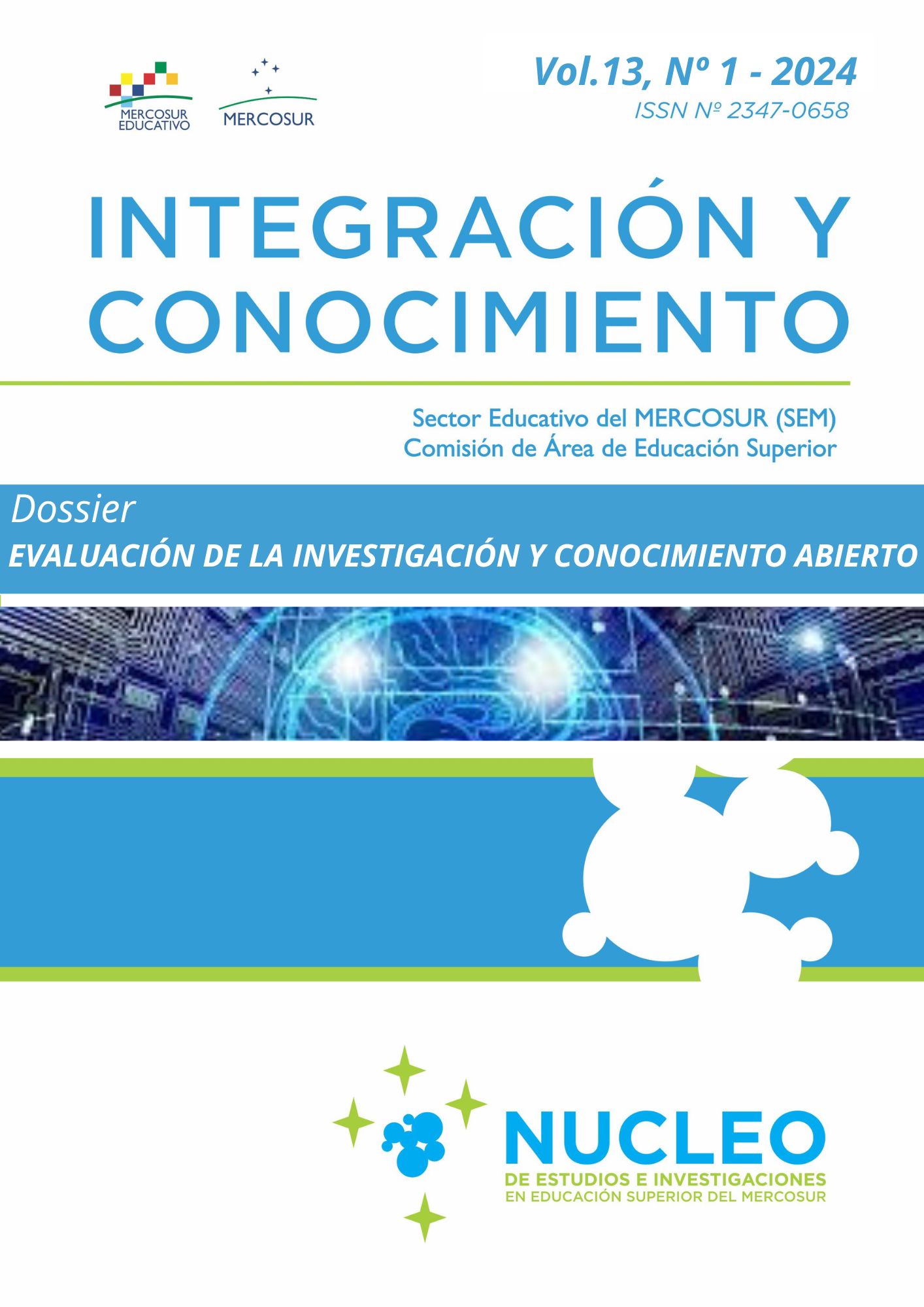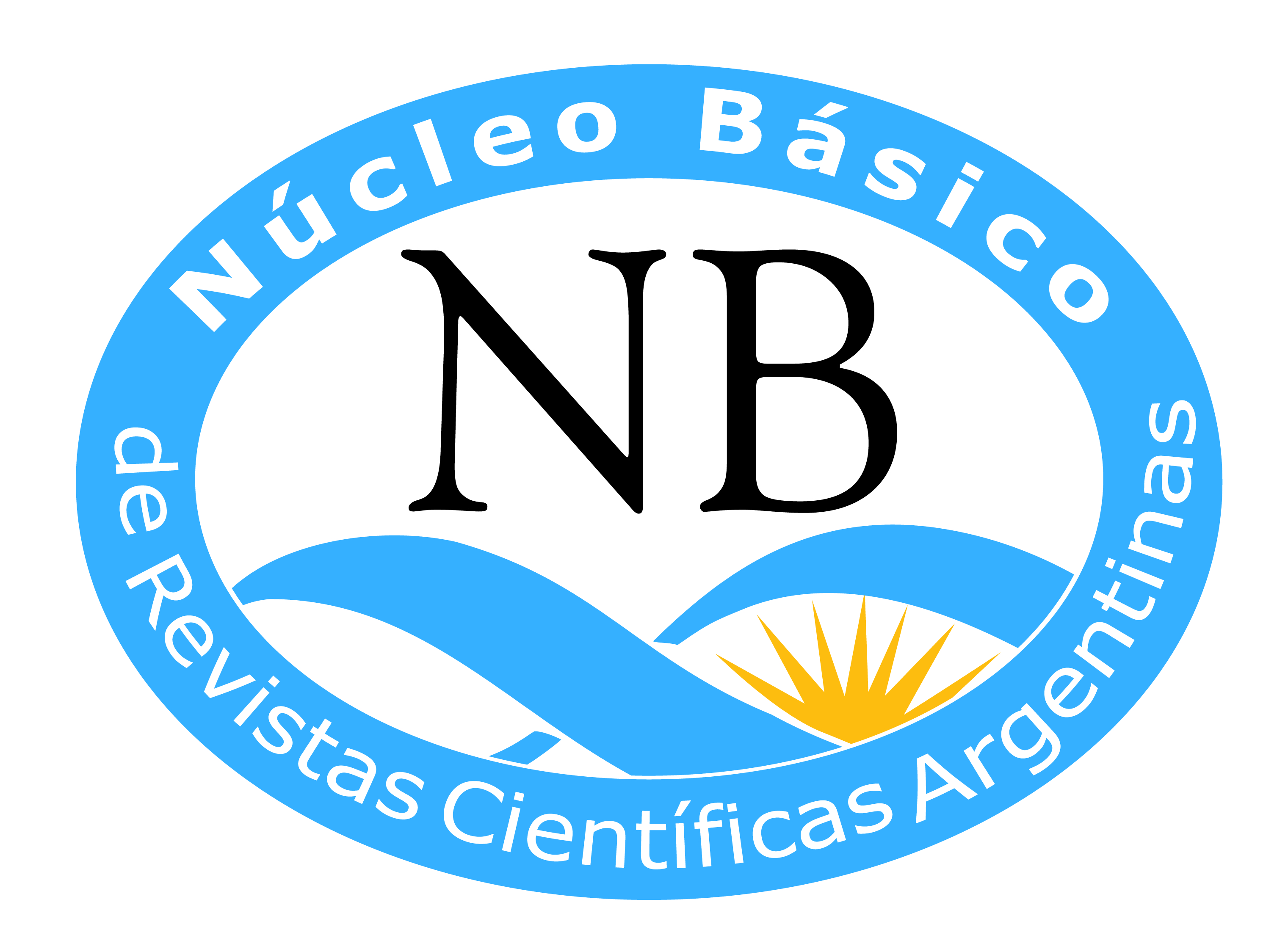The evaluation of scientific graduate programs in Bolivia
DOI:
https://doi.org/10.61203/2347-0658.v13.n1.44217Keywords:
Research evaluation, graduate programs, higher education, BoliviaAbstract
Since their beginnings in the mid-1980s, graduate programs in Bolivian public universities have had a more formative and professionalizing approach rather than a research orientation, with the exception of a few programs supported by international university cooperation, labeled as “scientific graduate programs”. However, a handful of those programs have been subject to evaluation, whose understanding could provide significant clues for structuring similar programs, or for the innovation of traditional graduate programs aimed mostly at content delivery. Focusing on the evaluation of six scientific graduate programs supported by international cooperation in a Bolivian public university, this article aims to analyze the instruments, the process, and the results of the evaluation of these programs. To achieve this objective, a methodology of documentary review and interviews of key actors involved is used. We argue that the evaluation of these programs is part of an attempt to innovate the graduate level of training, promoted by an alliance of local and international actors, but that they do not succeed in rooting this practice in the local academic graduate culture. The results suggest that the evaluation instruments were an incomplete adaptation of instruments designed for other academic contexts, that the process responds more to administrative requirements of the funding agency, and the results did not have the impact of transforming the local graduate culture. Considering that the evaluation of graduate programs is an emerging field of study, we conclude calling for further research on this subject matter, by considering similar evaluation experiences.
Downloads
References
Abreu Hernández, L. F., y De la Cruz Flores, G. (2015). Crisis en la calidad del posgrado. ¿Evaluación de la obviedad, o evaluación de procesos para impulsar la innovación en la sociedad del conocimiento? Perfiles Educativos, XXXVII(147), 162-182. Recuperado de https://perfileseducativos.unam.mx/iisue_pe/index.php/perfiles/article/view/47272/42554
Axelsson, A., Tollefsen, A., y Peñarrieta, M. (2018). Evaluación de seis programas de maestría científica de la UMSS. Informe final.
Beigel, F. (2018). Las relaciones de poder en la ciencia mundial. Un anti-ranking para conocer la ciencia producida en la periferia, Nueva Sociedad (274), 13-28.
Galindo Céspedes, J. F. (2005). Estrategia para la Organización del Doctorado en Educación. Documento de Trabajo.
García, M., Franssen, A., y Camacho Acosta, J. L. (2014). Evaluación de la calidad de la investigación en la Universidad Mayor de San Simón. Desafíos y perspectivas.
Gingras, Y. (2002). Les formes spécifiques de l'internationalité du champ scientifique. Actes de la Recherche en Sciences Sociales, (141-142).
Lemez, R. (2004). La acreditación de la educación superior. Análisis comparado de las prácticas vigentes. Avaliacao Revista da Avaliacao da Educacao Superior, 9(3), 99-110.
Marquina, M. (2006). Tendencias recientes de los sistemas de evaluación de la educación superior en el actual escenario internacional. Un nuevo 'round' del Estado evaluador. Avaliacao Revista da Avaliacao da Educación Superior, 11(4), 27-50.
Mayorga, J. A. (2022). Instrumentos de evaluación de la investigación en un campo universitario en construcción (Bolivia): un estudio de caso en la Universidad Mayor de San Simón. [Tesis de doctorado], Louvain la Neuve, UCLouvain.
Mayorga, J. A., De la Cruz, M. T., Galindo, J. F., y Arzabe, J. O. (2021). Gobernanza e instrumentos de la evaluación de la investigación en Bolivia: un estudio de caso en la Universidad Mayor de San Simón. En L. Córdoba, L. Rovelli, y P. Vommaro. (Eds.), Política, gestión y evaluación de la investigación y la vinculación en América Latina y el Caribe (pp. 125-164). Buenos Aires: CLACSO.
Moreno J., Z. (2004). Diagnóstico y perspectiva de los estudios de postgrado en Bolivia. IESALC - UNESCO.
Ortiz Ocaña, A. (2015). Enfoques y métodos de investigación en las ciencias sociales (1ra ed.). Ediciones de la U.
Rama, C. (2009). El nacimiento de la acreditación internacional. Avaliacao Revista da Avaliacao da Educacao Superior, 14(2), 291-311.
Rodríguez Ostria, G. (1997). El posgrado en la universidad pública boliviana. UDAPSO.
Universidad Mayor de San Simón. (2011). Concept note. For Research Cooperation between UMSS and SIDA 2013-2017. UMSS.
Universidad Mayor de San Simón. (2012). La investigación en la Universidad Mayor de San Simón 2012-2021. Marco conceptual.
Universidad Mayor de San Simón. (2018). Sistema de Gestión de la Calidad en Investigación y Posgrado 2018. Cochabamba, Cochabamba, Bolivia.
Downloads
Published
Issue
Section
License
Copyright (c) 2024 Integración y Conocimiento

This work is licensed under a Creative Commons Attribution-NonCommercial-ShareAlike 4.0 International License.
Authors who have publications with this journal accept the following terms:
a. Authors shall retain their copyright and guarantee the journal the right of first publication of their work, which shall simultaneously be subject to the Creative Commons License of Recognition which allows third parties to share the work as long as its author is indicated and its first publication is this journal.
b. Authors may adopt other non-exclusive licensing agreements for the distribution of the published version of the work (e.g., depositing it in an institutional telematic archive or publishing it in a monographic volume) provided that the initial publication in this journal is indicated.
c. Authors are allowed and encouraged to disseminate their work via the Internet (e.g. in institutional telematic archives or on their website) after publication of the article, which may lead to interesting exchanges and increased citations of the published work. (See The Effect of Open Access).



